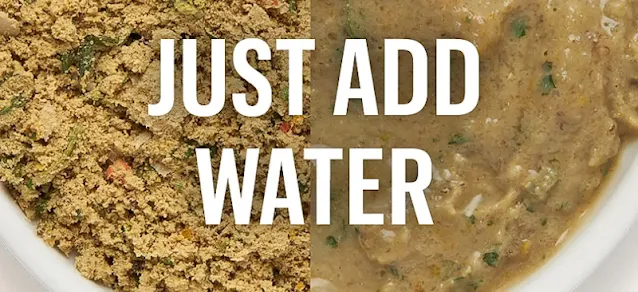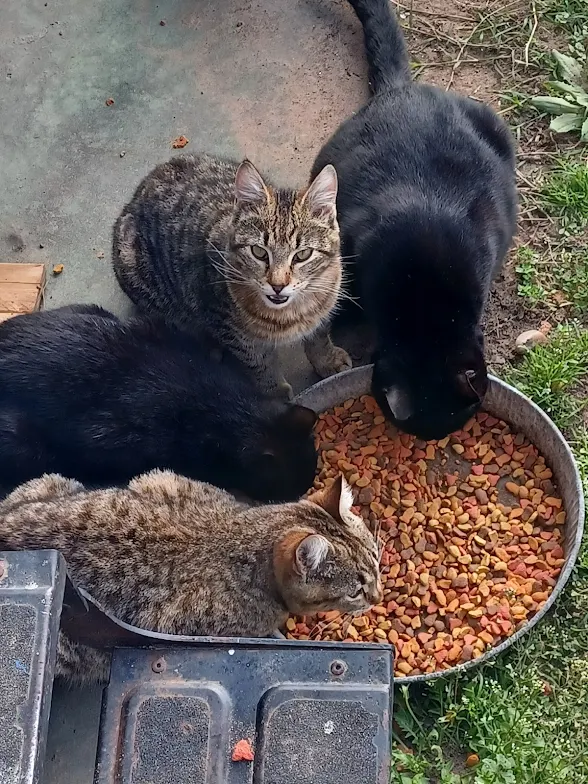I have never considered it but there is an "intermediate" type of cat food which is dehydrated wet cat food. It is shipped in packets as a powder. You pour out the amount that you think your cat can eat at one sitting. You add some warm water and it becomes a pâté or a soup depending upon how much water you add.
The advantages are that you can control the portion size and of course the storage of the food is easier. It is very compact and very long lasting. It gives the cat owner better control over cat food storage and delivery.
 |
| How many people use dehydrated wet cat food to feed their cat? Image: The Honest Kitchen |
I think this is important because often cats don't finish the portion provided because the sachet is too big or perhaps the owner gives them too much. I don't know how many millions of tonnes of wasted, smelly wet cat food is thrown away into garbage cans annually in any one country but I expect that it is a vast tonnage.
Anything to reduce cat food waste would be welcome. I think dehydrated wet cat food is a great way to control portion size as mentioned. There appear to be some downside. It is not that readily available it seems to me in the UK (for instance). It appears to be less common than conventional wet cat food and certainly much less common than dry cat food.
And of course, you've got to add warm water which means using the kettle. A small irritation but one nonetheless. And finally, it appears to be expensive. Some cat food nowadays is inordinately expensive. It looks more expensive than human food and cat owners don't have a bottomless pit of money.
There has to be a reasonable balance between the advantages of living with a cat and the expense of keeping a cat. Cat owners have a duty to provide high quality cat food and a lot of cat food is not of high quality particularly cheap dry cat food.
However, there is a limit and I suspect that the apparent lack of popularity of dehydrated wet cat food is due to its expense. Have you tried it?
If it is more expensive and it appears to be this may be due to the manufacturing process. It is dehydrated after all so all the moisture is taken out of wet cat food. That might be an expensive manufacturing process.
The point has to be made that it is impossible to try and make comparisons on price between the various types of cat food. It's far too complicated which is why I have questioned whether it is more expensive than conventional wet cat food.
If you have personal experiences of using dehydrated wet cat food then please share them in a comment. They would be most welcome.




